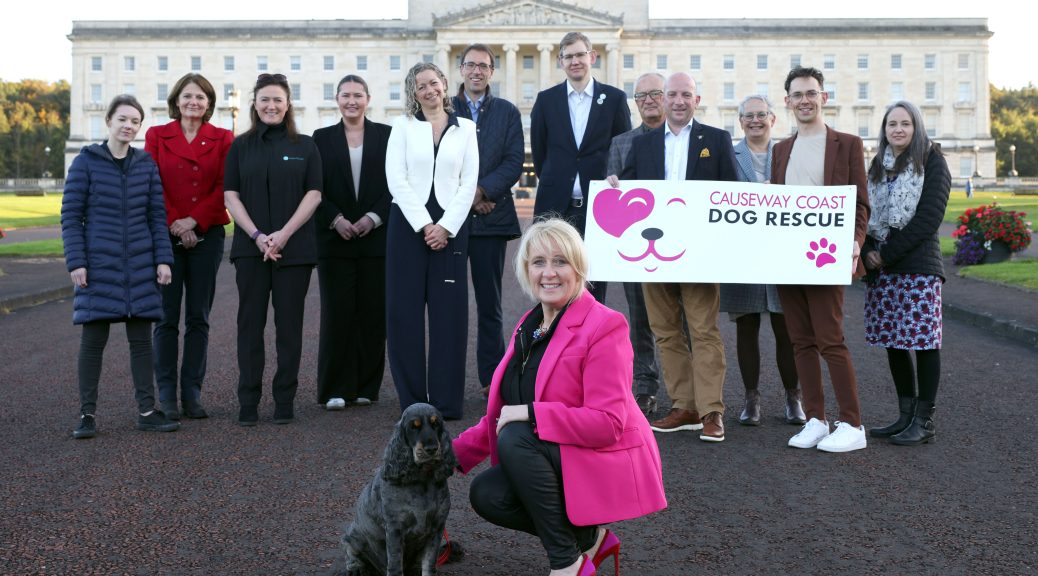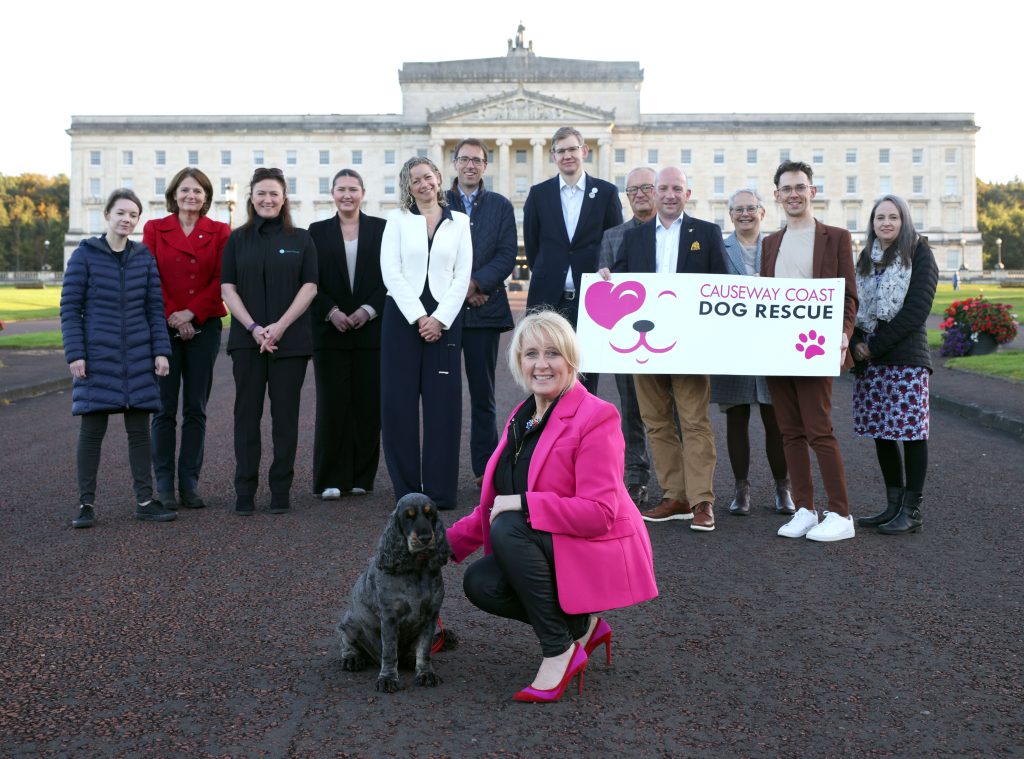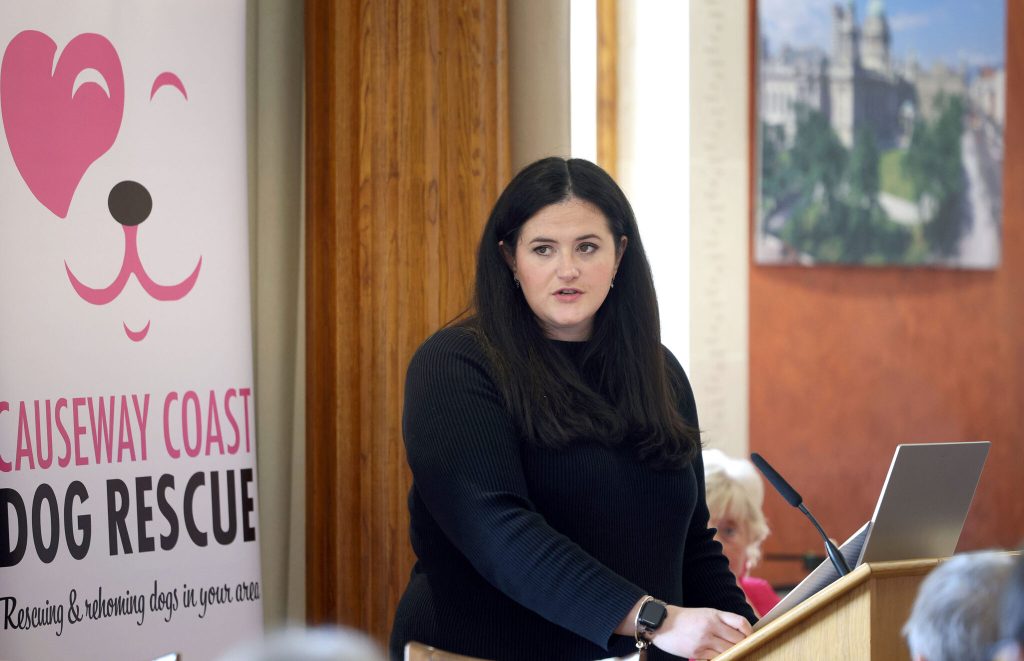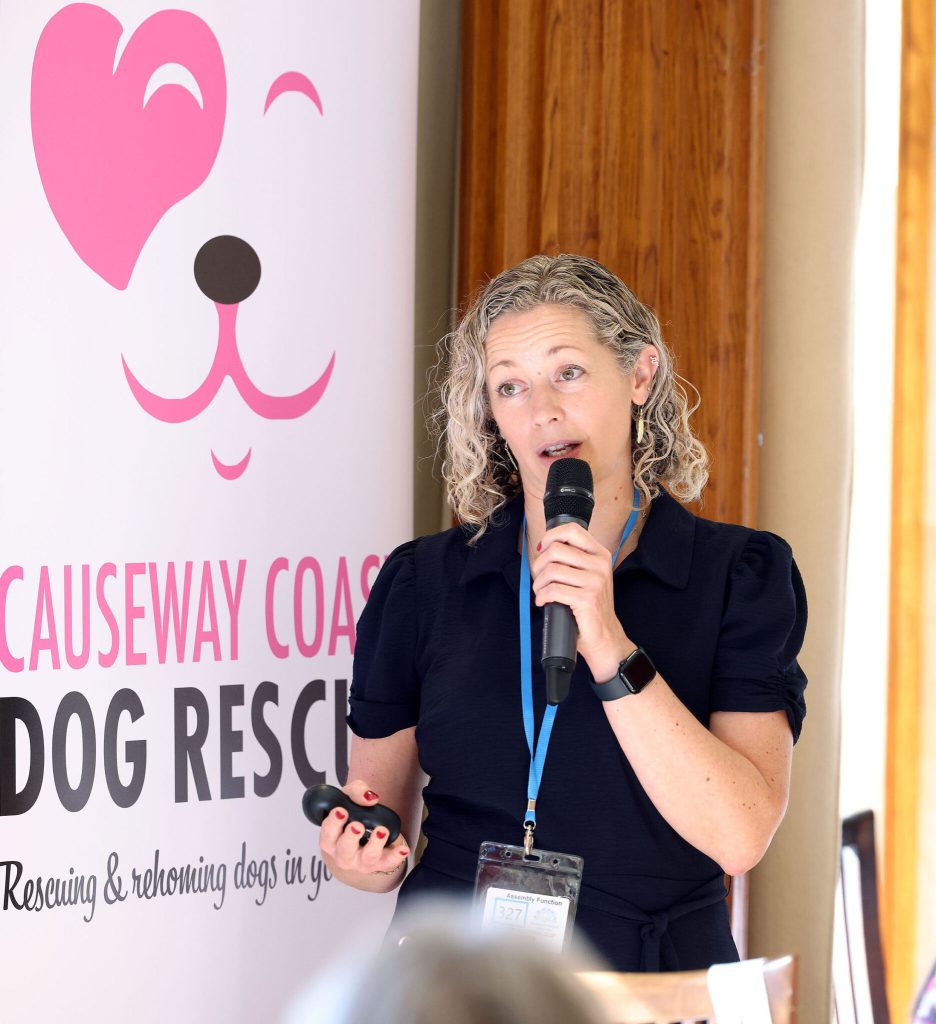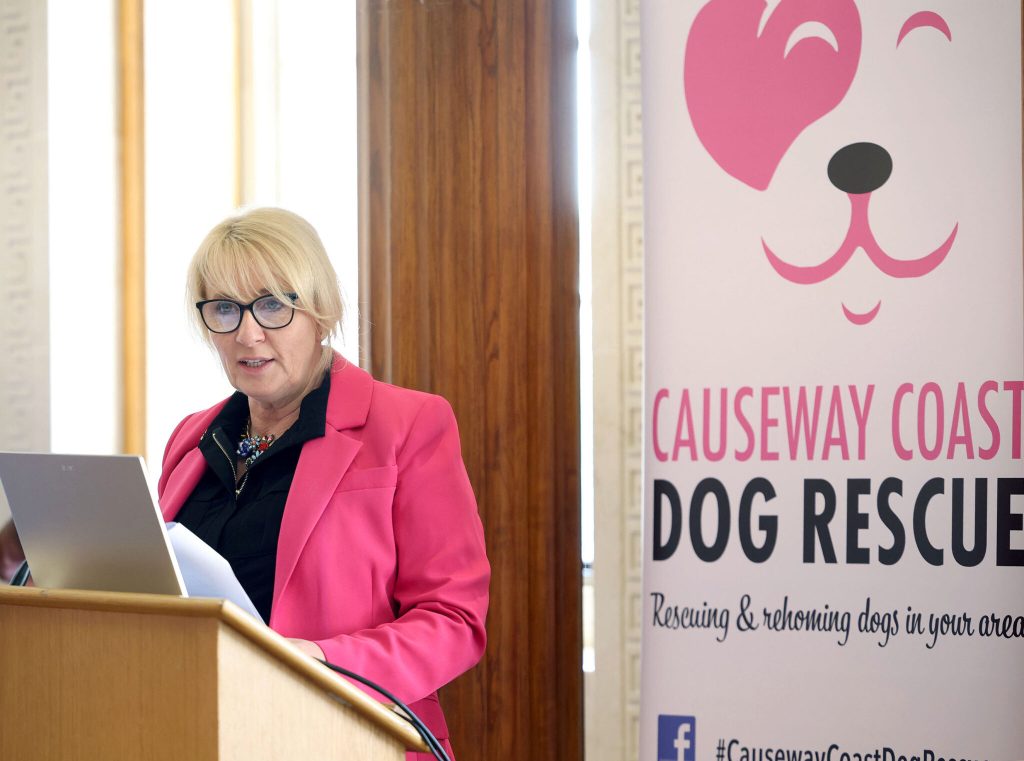Working collaboratively across sectors is the key to creating safer, more compassionate communities for everyone, with benefits including improved mental and physical health in both humans and animals, according to experts in animal welfare, psychology, veterinary science and law.
Representatives from organisations including Battersea Dogs & Cats Home, Dogs Trust and animal welfare charity Naturewatch Foundation, joined vets, researchers and a leading psychologist at Stormont on October 2 for Northern Ireland’s second annual animal welfare conference. Organised by Causeway Coast Dog Rescue (CCDR), the conference took collaboration as its theme and was entitled ‘What does collaboration look like to improve companion animal welfare?’ The event audience, meanwhile, included attendees from the PSNI, along with MLAs, various animal welfare organisations, Action Mental Health and the media.
Welcoming everyone to the event, host Claire Sugden MLA, highlighted the links between animal abuse and human violence and said, “The system can’t function if there’s no collaboration.” She added that it was important that anyone who reported an animal welfare issue was then updated about that, as a lack of communication with the public after reporting a welfare concern was a key issue in Northern Ireland.
“This erodes trust in the system and creates a hesitancy to report in the future,” she said, adding that there was also a need “to support both animals and their owners during tough times – for example, with mental health providers and social workers.”
“The emotional toll of working in this sector is huge,” she said. “People working on the frontline of animal welfare are at risk of burnout, trauma and fatigue from witnessing animal abuse. We must also care for the mental health of those dedicating their lives to animal care.”
Recognising trauma in animal welfare workers
Protecting the mental health of those working within the animal welfare sector was something echoed by psychologist and author, Dr Tara Quinn-Cirillo, who has set up the Human Animal Welfare Alliance (HAWA) to help address this issue. Currently working on developing the UK’s first Emotional Health Toolkit for animal welfare workers, this digital tool will include resources “to help staff manage their emotional health.” The initiative also includes monthly emotional health check-in sessions where staff can speak in a safe space, along with targeted mental health training on vicarious trauma, stress, anxiety, overwhelm and burnout. Meanwhile, staff who need to discuss a particularly traumatic event can also arrange a one-to-one debrief session on the phone.
Discussing her ongoing research into the mental health issues experienced by animal welfare workers, Dr Quinn-Cirillo said that, while trauma was often present, employees didn’t always identify it as such.
“Quite often, there are different factors, where people don’t recognise that they’re going through trauma,” she said. “Trauma shows up so differently and can mimic things like anxiety and depression. Stress, overwhelm and burnout are trending words… but people aren’t being supported to recognise trauma, or they don’t realise you can get trauma from this sort of situation. It’s important to identify trauma because the way I work with that, as a psychologist, is very different from how I work with stress.”
She added that complex trauma was also an issue within the animal welfare sector, where events in people’s personal lives overlapped with those of their working lives to create a more multifaceted type of trauma. Meanwhile, vicarious trauma was another type of trauma experienced by some employees.
“Vicarious trauma is where you’re absorbing other people’s trauma,” said Dr Quinn-Cirillo. “That’s a really massive issue in animal welfare too – as is grief. People often don’t realise that grief isn’t just about loss through death. It’s about the grief that accompanies dealing with animals being handed in to shelters in distressing circumstances and the animals who are then later rehomed – there can be grief around that loss as well, which quite often isn’t acknowledged.”
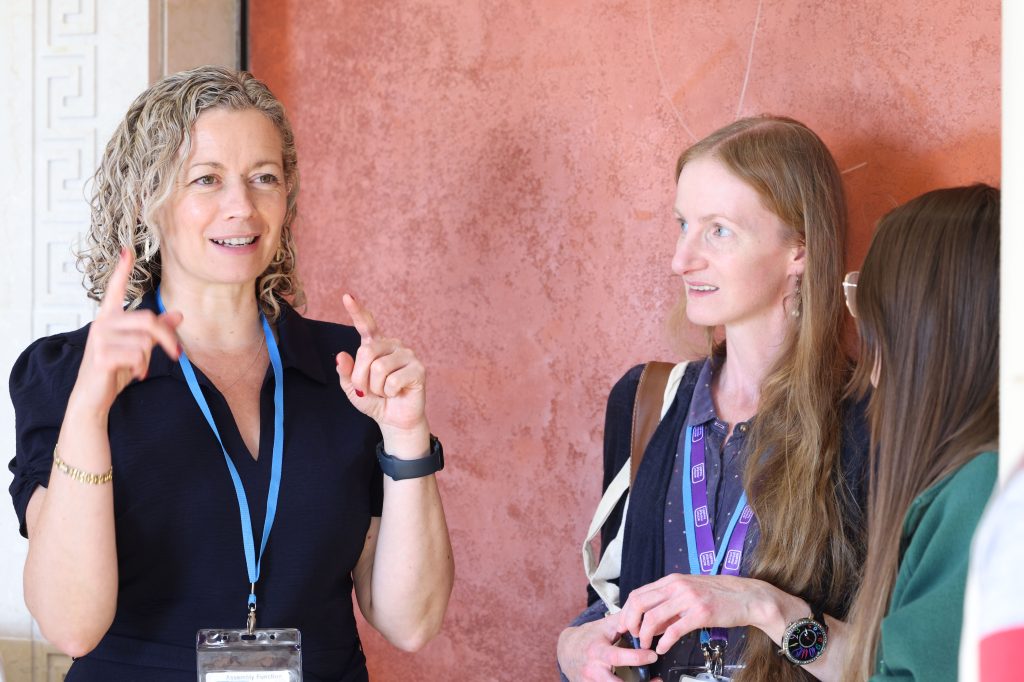
Dr Quinn-Cirillo is now beginning to work with animal charities across the UK, providing free online Monthly Emotional Health Sessions as part of the HAWA. Speaking to Action Mental Health after the conference, she said that anyone in Northern Ireland working in animal shelters could access this support and that she was in the process of recruiting more psychologist volunteers onto the project to help deliver it. Her long-term goal, she added, was to create bespoke toolkits for individual rescue organisations, to help address the specific issues they faced, alongside the more general mental issues experienced within the sector as a whole.
“What I really want to do in the long-term is to come up with a model of mental health support they can implement themselves, as each rescue might have slightly different needs,” she said. “The Human Animal Welfare Alliance isn’t a tick box project. We have a survey on the website that animal shelter workers can fill in and let me know what they’re feeling. The Monthly Emotional Support Sessions then give them a space to be heard – as do the telephone debriefs for key incidents. It’s not therapy or counselling, just straightforward debriefing, which is so important.”
Links between animal and human abuse
Also speaking at the conference was Animal and Human Nurse, Helen Ballantyne, who discussed One Health and what that means in terms of collaborative working. “The human-animal bond needs reframing,” she said. “There’s a lack of understanding about how animal welfare links to human welfare.”
Referencing the Independent Investigation of the National Health Service in England (September 2024), she said the evidence showed the nation’s health was deteriorating and that “our companion animals are a barometer for our own public health.” Dr Paula Boyland, BVetMed MRCVS Chair of The Links Group and Veterinary Director of Dogs Trust, also discussed the crisis link between animals and people and gave an example of a domestic abuse incident involving first a pet dog and later, a baby. On both occasions the reason given for injuries sustained was that they fell down the stairs – first the dog and, on the next occasion, the child. Dr Boyland said this was a case where the animal abuse had clearly preceded the human abuse, adding that, “this link between abuse of animals and abuse of humans is being more recognised.”
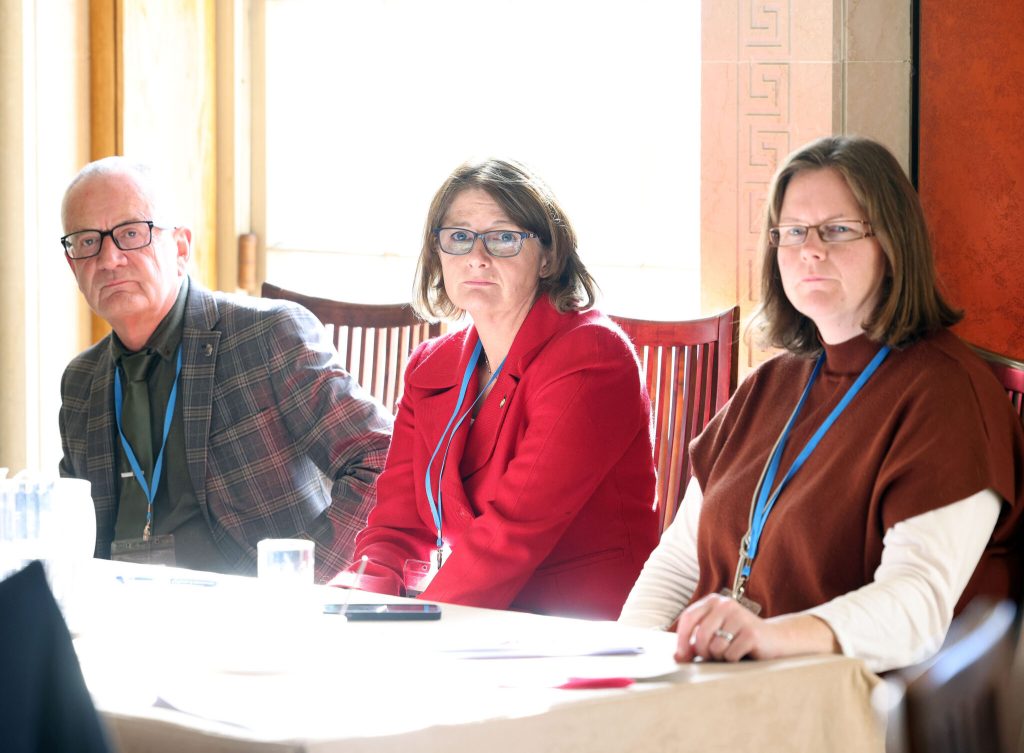
Indeed, research conducted by the Links Group in 2021 found that nine out of ten domestic abusers also targeted pets. Dr Boyland further outlined how domestic abusers also sometimes gave pets to their partners as presents, letting them bond before exhibiting coercive control over the other person. She added that, not only did any emotional and physical abuse inflicted impact upon the person targeted, but it also adversely affected the pet. Indeed, a real-life video clip played at the conference clearly showed how distressed a dog became when witnessing its owner being physically hurt.
“Domestic abuse has a massive impact on the dogs as well,” she said. “Specific pet foster services can help. There’s a huge need for pet fostering services in Northern Ireland, so we’re hoping we can get a service here.”
She added that pets could also be a barrier to someone leaving a domestic abuse situation, as they wouldn’t leave their animals at the mercy of the abuser, something also highlighted in a Belfast Women’s Aid article in 2017. The article stated: “Many women will simply not want to leave their pets in a volatile and dangerous home and at the hands of an abuser who will utilise every means possible to establish and maintain power and control over his victim. He is not afraid to harm. Unfortunately in Northern Ireland, Women’s refuges do not have the means or facilities to temporarily home these pets.”
Reiterating the overall theme of the conference, Dr Boyland said that collaboration with animal and human welfare groups was therefore key, along with vet training for the entire protection team involved in such incidents. Meanwhile, providing mental health support for those involved in such work was also a crucial element of this.
Former senior police detective and current campaign manager for Naturewatch Foundation, Mark Randall, addressed the conference in a similar vein. He said that taking crimes against animals seriously would ultimately protect people too – both physically and mentally. Indeed a key part of his work now revolves around training police and others on recognising the importance of animal welfare and abuse within relationships, family units and communities.
“When you see that red flag, you need to do something about it,” he said. “Protecting animals isn’t ‘extra work.’ It helps keep relationships and communities safer, reduces abuse and violence towards people… issues that are always public protection priorities.”
Tara Cunningham, manager and lobbyist at Causeway Coast Dog Rescue (CCDR) said the charity’s objective with the conference had been to be “positive and productive.”
“CCDR is like many charities in Northern Ireland, we rescue and rehome unwanted dogs, to ensure they have a second chance with a caring and loving family, free from abuse and neglect,” she said
“We look at animal welfare from a different perspective than any other charity, which is through legislation and governance, identifying the gaps and implications on the services being delivered. We look to ensure that there is accountability and transparency included by the three government service providers responsible.”
She added that they were “calling for the ministers of DAERA to support the movement and oversight of legislation and enforcement” in Northern Ireland and for councils to “fulfil their legislative remit.” Only in this way could the ongoing animal welfare crisis – which impacted upon both animal and human physical and mental health – be addressed. Ultimately, collaboration between organisations was key.




